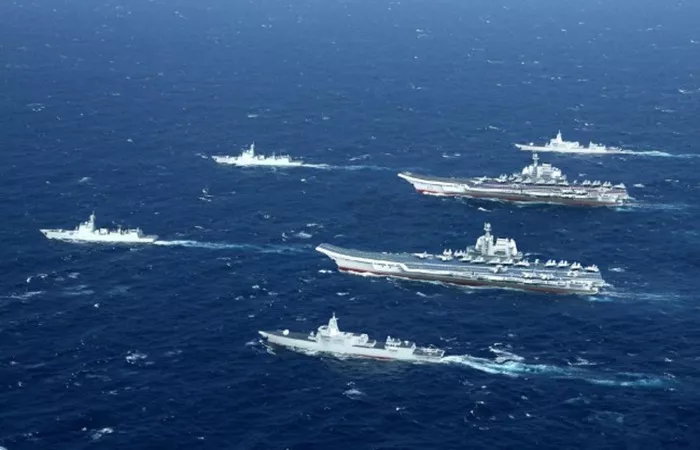Liaoning and Shandong Carrier Strike Groups Train Simultaneously in Strategic Waters
China’s People’s Liberation Army Navy (PLAN) has deployed its two operational aircraft carriers, the Liaoning and Shandong, for coordinated training exercises in the Western Pacific for the first time. Navy spokesperson Senior Captain Wang Xuemeng confirmed the drills are routine annual exercises aimed at enhancing the navy’s far-sea defense and joint combat capabilities.
Strategic Significance of Dual-Carrier Operations
Military expert Wang Yunfei told media outlets that dual-carrier operations represent a significant advancement over single-carrier deployments, requiring complex coordination to avoid mutual interference. “This marks China’s first dual-carrier training in the Western Pacific waters east of Taiwan, a strategically vital area for national defense,” Wang noted.
The drills follow the carriers’ first joint exercise in the South China Sea last October. Analysts suggest such training is essential for potential conflict scenarios where China might face multiple threats from island-based forces and foreign carrier groups.
Detailed Deployment Patterns
Liaoning Strike Group’s Extended Deployment
Japan’s Defense Ministry first tracked the Liaoning carrier group entering the Pacific via the Miyako Strait on May 27. The battle group included:
- 2 Type 055 destroyers (Nanchang and Wuxi)
- 3 Type 052D destroyers
- 1 Type 054A frigate
- 1 Type 901 supply ship
Japanese forces deployed destroyers and P-3C patrol aircraft to monitor the exercises, which included extensive flight operations approximately 190 km southeast of Miyako Island.
Shandong Joins the Training
On June 7, the Shandong carrier group appeared about 550 km southeast of Miyako Island, accompanied by:
- 1 Type 055 destroyer (Zunyi)
- 2 Type 054A frigates
- 1 Type 903 supply ship
Breaking New Ground in Pacific Operations
Liaoning’s Record Far-East Deployment
The Liaoning made headlines by operating near Japan’s Minamitorishima Island (Marcus Island), about 1,800 km southeast of Tokyo – marking China’s easternmost carrier deployment to date. International media noted this demonstrates the PLAN’s growing blue-water capabilities beyond the so-called “second island chain.”
Diplomatic Responses
Chinese Foreign Ministry spokesperson Lin Jian reiterated that the naval activities comply with international law and practice, urging Japan to view the exercises objectively. Defense Ministry spokesperson Senior Colonel Zhang Xiaogang previously dismissed Japanese concerns as “overreactions.”
Military Experts Analyze Training Objectives
Complexities of Dual-Carrier Coordination
Naval expert Zhang Junshe explained that dual-carrier operations involve far more than simply combining two strike groups. “It requires solving challenges like electronic interference avoidance and optimal force allocation to achieve synergistic effects greater than the sum of individual capabilities,” Zhang noted.
Normalizing Far-Sea Training
Experts emphasize these drills represent necessary steps for the PLAN to:
- Familiarize crews with distant operating environments
- Test logistical support systems
- Develop comprehensive combat systems
- Dismantle outdated “island chain” containment concepts
Wang Yunfei concluded: “As China’s navy progresses, operating in deeper ocean areas becomes natural for improving combat readiness. Future deployments may involve three-carrier operations depending on strategic needs.”
The exercises showcase China’s growing naval capabilities while adhering to international norms, though they continue to draw heightened regional attention amid ongoing geopolitical tensions.
Related topic:

